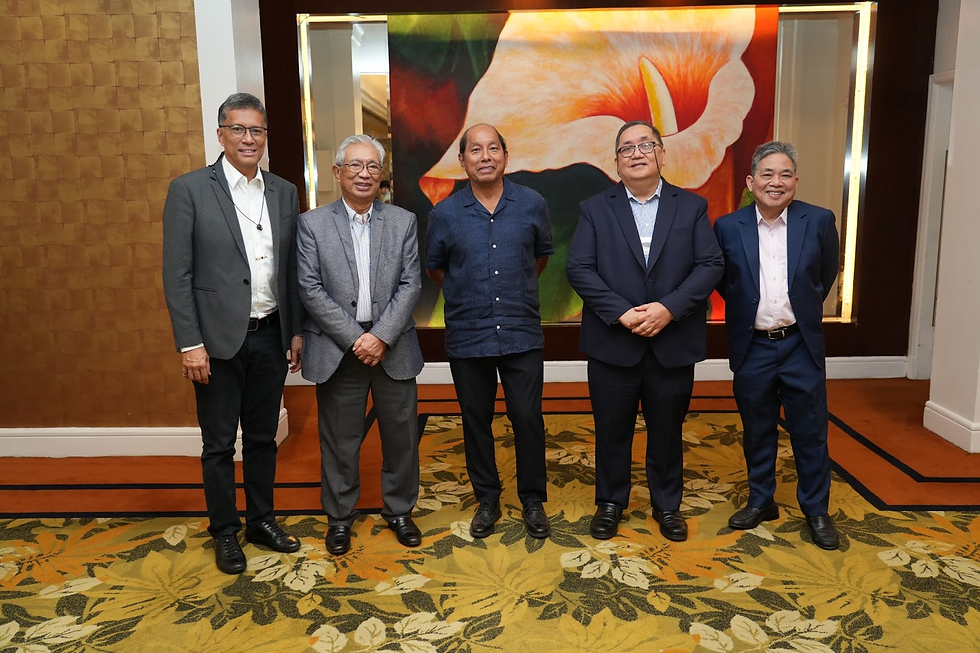ACTION FOR ECONOMIC REFORMS URGES SENATORS TO REJECT RECTO’S KILLER AMENDMENTS TO CREATE
- Action for Economic Reforms
- Oct 19, 2020
- 3 min read
Tomorrow, October 20, the Senate will hold a caucus to vote on Senator Ralph Recto’s proposed amendments on the Corporate Recovery and Tax Incentives for Enterprises (CREATE) Bill. These three amendments, presented by Senator Recto last week, are as follows: excluding the investment promotion agencies PEZA, CDC, AFAB and APECO from the incentive package requirements in CREATE; creating a distinction between domestic and export enterprises; and the grandfathering of incentives, or having all existing investments retain all benefits that they are currently enjoying without being subjected to the incentives regime from CREATE.
AER lambasts this attempt of Senator Recto to push for amendments that will kill the core objectives of CREATE. At the very center of the reform is to ensure that our incentives regime provides tax relief and other benefits that are targeted, performance-based, time-bound, and transparent. Rejecting these amendments will be crucial to ensure that the reform measure succeeds in attracting investments that are sure to generate jobs and achieve the national economic goals of the country.
Grandfathering of incentives violates a core principle of the fiscal incentives reform—incentives should be time-bound, there should be clear sunset/graduation provision for incentives given. It violates fairness and equity, as Registered Business Enterprise (RBEs) that have enjoyed incentives for years will continue doing so despite the general change in the incentives regime. It destroys competition—incentives will be retained by those who may not be part of the investments priorities anymore or are no longer cutting-edge or strategic. CREATE already provides a transitory period for these RBEs and asking for the overall exemption of these enterprises from the reform measure defeats the purpose of the bill.
Making the distinction for export enterprises defeats the purpose of CREATE. In his proposed amendment, Sen. Recto wants to delineate export-oriented enterprises from domestic enterprises. The amendments will give perpetual benefits to export-oriented entities and thus will violate the objective of CREATE to mandate graduation from these tax perks. The reform aims to prevent redundant and perpetual benefits. These incentives are supposedly given so that these corporations can start up. Once they find their footing, they should perform their duty to the country by paying the correct taxes. We also want them to be subject to the FIRB process of carefully deciding on what incentives they should be receiving. This will ensure that incentives given are based on the current industrial plan of the government and will align with other economic objectives. Furthermore, Recto’s distinction between production of exports and production for the domestic market is wrong. Both are tradables, in the sense that local goods for the domestic market also compete with imports, and both can bring about huge social benefits. Lastly, generous, even perpetual, incentives do not help our exports, as demonstrated by the fact that Philippine exports in general have stagnated over time. Incentives have to be performance-bound and time-bound to keep firms alert and competitive. Because of the complacency arising from generous incentives, some exporters do not have the motivation and effort to produce higher value-added products or move up to higher stages of the value chain. Hence, the need to target and restructure the fiscal incentives.
We reject the exclusion of PEZA, CDC, AFAB, AND APECO from CREATE. The main goal of CREATE is to mandate a central body that will facilitate the provision of incentives in the country. Allowing these enterprises to be exempted defeats that purpose. Considering the number of RBEs under them, it sets us back to the status quo where incentives are difficult to assess in terms of being targeted, performance-based, time-bound, and transparent.
Recently, Japan announced its plan to expand subsidies encouraging businesses to move its production sites to Southeast Asia, presumably to reduce dependence on China. These subsidies focused on supporting ASEAN member countries present a golden opportunity for the Philippines to attract investments from Japanese manufacturers. In order for us to fully take advantage of the exit of Japanese companies from China, it is critical to have a good incentives law passed at the soonest possible time. Time is of the essence.
Thus, we call on the senators to reject all three of Senator Recto’s proposed amendments, which pose a threat to CREATE’s reform, and to pass the bill at the soonest possible time so we can finally reform our tax incentive regime.



